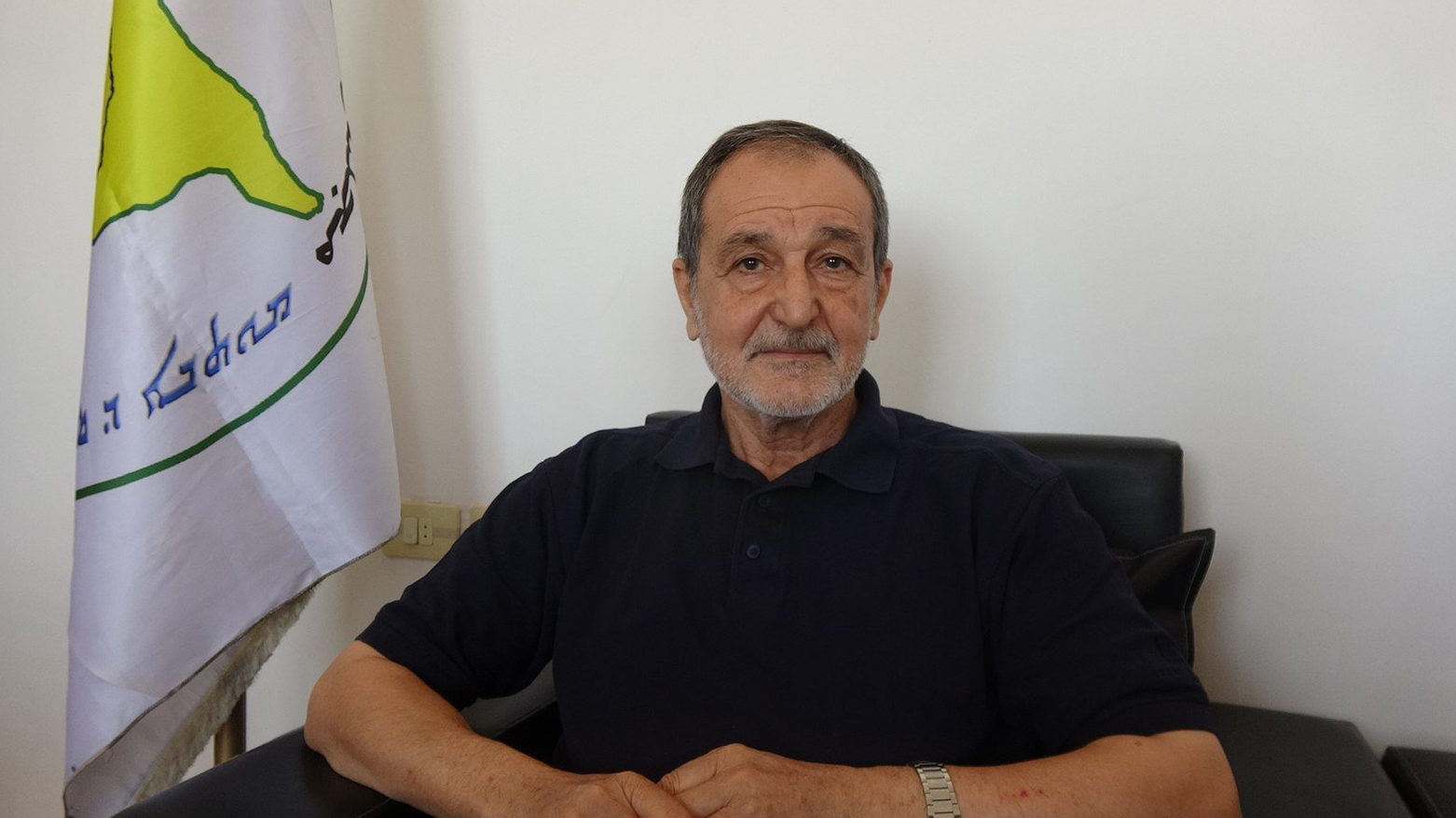SDC Co-Chair Responds to U.S. Envoy’s Remarks on Syria's Political Future
SDC's Dirar counters US envoy Barrack, asserting decentralized governance—not federalism—as Syria's path forward. He warns against Damascus' sectarian model while defending autonomous administration as key to inclusive, stable Syria.

By Ahora Qadi
ERBIL (Kurdistan24) – The Co-Chair of the Syrian Democratic Council (SDC), Riyad Dirar, has expressed cautious optimism about ongoing negotiations with Damascus, while emphasizing the need for clarity and structural details surrounding the March 10 agreement between the Democratic Autonomous Administration of North and East Syria (DAANES) and the Syrian government.
Speaking in response to recent statements by U.S. Special Envoy for Syria Thomas Barrack, Dirar stated that the latest round of talks with the Syrian government produced no formal agreement, but the two sides agreed to continue dialogue. He also urged acceleration of the negotiation process, noting that both parties have differing motivations and goals that still require detailed clarification.
"No Integration Without Structure"
Addressing the subject of integrating the Syrian Democratic Forces (SDF) into the Syrian military, Dirar said such a move requires a thorough discussion about the nature and structure of the military system. He noted that the current configuration of the Syrian army “favors one side ideologically and religiously,” a model incompatible with building a truly national army.
“SDF is open to dialogue on how the army should be formed and what its objectives should be,” Dirar said, as quoted by the Syrian Observatory for Human Rights. He stressed that a national army must include all Syrians based on competence, not ideological loyalty, adding that DAANES seeks to protect local areas using forces native to them to avoid a repeat of tragic incidents seen in the coastal and southern regions, where undisciplined units acted recklessly.
On U.S. Remarks Regarding Federalism
Responding to Barrack’s remarks that federalism is not feasible in Syria, Dirar countered, saying the current model is not federal but decentralized governance. “We talk about decentralization, not federalism,” he clarified. “Decentralization allows regions to govern themselves administratively while remaining linked to Damascus through central institutions.”
He acknowledged that certain ministries like defense, foreign affairs, and finance must remain centralized, but argued that sectors like education and agriculture could be managed regionally. “This isn’t a federal system. It’s a full institutional model delegated by the center, allowing local authorities to use powers that support development without central domination,” Dirar said.
He also criticized the U.S. envoy’s remarks as potentially giving the wrong signal to Damascus, suggesting that America’s posture could embolden the Syrian government to persist in religious and exclusionary governance, which the constitutional declaration has already exposed.
“Dialogue Will Continue”
Dirar reiterated that the dialogue with Damascus is ongoing, driven by the aim of achieving mutual understandings. He emphasized that the SDF’s sacrifices, in the fight against ISIS with the help of the Global Coalition, were made in defense of Syria and the world and “will not be in vain.”
While noting that the administration in North and East Syria (Western Kurdistan) is capable of defending itself, Dirar emphasized the importance of international recognition and support, which the SDC has worked towards for years. “Through negotiation, mutual achievements can be reached, though both sides must offer concessions while upholding core principles,” he stated.
From Federalism to Decentralization
Reflecting on the SDC’s evolution, Dirar explained that what began as a federalism project in 2016 has now matured into a democratic decentralization model aimed at striking a balance between political inclusion and administrative autonomy. He underlined the significance of this vision in countering the ideological and sectarian direction of the current regime, asserting that such an approach does not align with the diverse aspirations of the Syrian people still suffering from the fallouts of Assad’s rule.